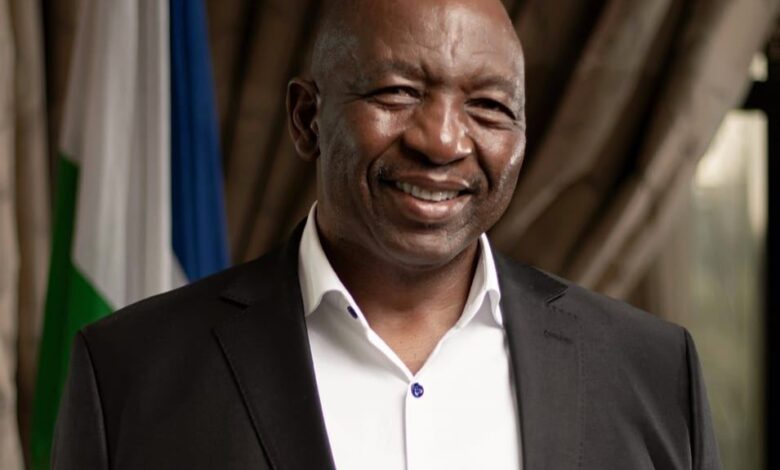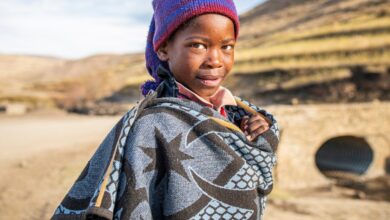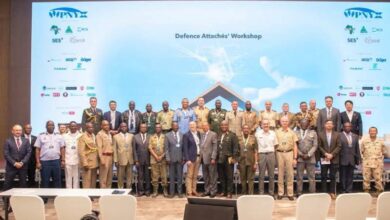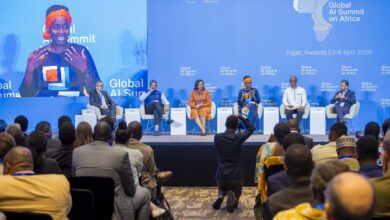Prime Minister Matekane Urges South African President Ramaphosa to Implement 90-Day Visa-Free Agreement

During the second session of the Lesotho–South Africa Bi-National Commission (BNC) on Wednesday, Prime Minister Sam Matekane made an urgent appeal to South African President Cyril Ramaphosa to commit to implementing the long-awaited 90-day visa-free entry arrangement for Basotho citizens by 1 May 2025.
The BNC serves as an important platform to deepen bilateral relations and promote cooperation in key sectors of mutual interest between the two neighboring countries. The session, attended by ministers from both Lesotho and South Africa, saw discussions on various collaborative efforts, with ministers presenting reports from their respective thematic clusters.
The Visa-Free Agreement: A Long-Awaited Commitment
The 90-day visa-free entry agreement was first discussed during the launch of the BNC on 28 September 2023, in Pretoria. The agreement, which was officially signed by the Home Affairs ministers of both countries on 14 March 2024, was initially expected to take effect on 1 April 2024. However, despite the agreement’s official signing, it has not yet been implemented.
Prime Minister Matekane expressed frustration over the delay, highlighting the significant expectations of the Basotho people. He stressed the importance of prioritizing the free movement of people, goods, and services between Lesotho and South Africa, emphasizing that the visa-free arrangement was a critical step toward addressing the challenges of migration and border management.
“We agreed on the need for a new migration model that recognizes Lesotho’s unique geographic position within South Africa, and that it must be implemented to resolve our ongoing border and migration challenges,” Mr. Matekane said. He went on to call for the implementation of the visa-free agreement by 1 May 2025, adding that the one-stop border facility at Maseru and Ficksburg was ready for full implementation, pending logistical finalization.
Progress on the Lesotho Exemption Permit (LEP)
Prime Minister Matekane also acknowledged the progress made since the first BNC session, particularly the extension of the Lesotho Exemption Permit (LEP), which allows Basotho citizens living and working in South Africa to remain legally employed and engaged in educational and business activities. Introduced in 2019, the LEP replaced the previous Lesotho Special Permit (LSP) and currently supports approximately 94,000 Basotho.
In February 2024, South African Minister of Home Affairs, Dr. Leon Schreiber, extended the LEP until 28 November 2025, providing time for the South African Migration Advisory Board (IAB) to review and prepare steps for the renewal of the LEP.
South Africa’s Position on the Visa-Free Arrangement
While President Ramaphosa did not fully engage with the 90-day visa-free proposal during the session, he briefly acknowledged that the South African Department of Home Affairs is still considering its implementation. His lack of direct commitment on the matter left some uncertainty regarding the timeline for the agreement’s execution.
However, President Ramaphosa did emphasize South Africa’s commitment to enhancing cooperation in other key areas, including education and immigration. He reiterated the importance of harmonizing immigration measures to facilitate the movement of citizens between the two countries in a secure and effective manner.
“We must strengthen immigration cooperation in a way that is both effective and secure,” President Ramaphosa said, also pointing out the need to jointly address cross-border criminal activities such as illegal mining, drug and human trafficking, and firearms smuggling, all of which threaten the harmony of both nations.
Additionally, President Ramaphosa recognized the significance of cross-border education, particularly for young Basotho students living near South African schools. He underscored the need for continued collaboration to support the educational development of these students, ensuring that access to quality education is not hindered by administrative barriers.
Strengthening Bilateral Cooperation
The BNC session concluded with the signing of several Memoranda of Understanding (MOUs) aimed at strengthening bilateral cooperation across various sectors. Among the key agreements signed were MOUs on defense and security collaboration, as well as agreements on cooperation in water and energy sectors.
The two countries also signed an MOU to establish a framework for cooperation on the proposed construction of two dams on the Mohokare-Caledon River, an important step in addressing regional water needs and improving infrastructure.
In a significant move towards sustainable development, both nations reaffirmed their commitment to advancing renewable energy initiatives. The goal is to collaborate on the development of renewable energy resources to ensure energy security, mitigate climate change, and foster economic growth.
Prime Minister Matekane’s call for the swift implementation of the 90-day visa-free arrangement underscores the urgent need for both countries to fulfill their commitments to ease movement across their borders. While progress has been made in other areas, such as the extension of the LEP and the development of collaborative infrastructure projects, the visa-free agreement remains a priority for Lesotho’s future relationship with South Africa.
As both nations continue to work together, the outcomes of these discussions will likely have a lasting impact on the economic and social landscape of both countries, fostering closer ties and greater cooperation in the years to come.
Join 'Lesotho News' WhatsApp Channel
Get breaking Lesotho news — delivered directly to your WhatsApp.
CLICK HERE TO JOIN



